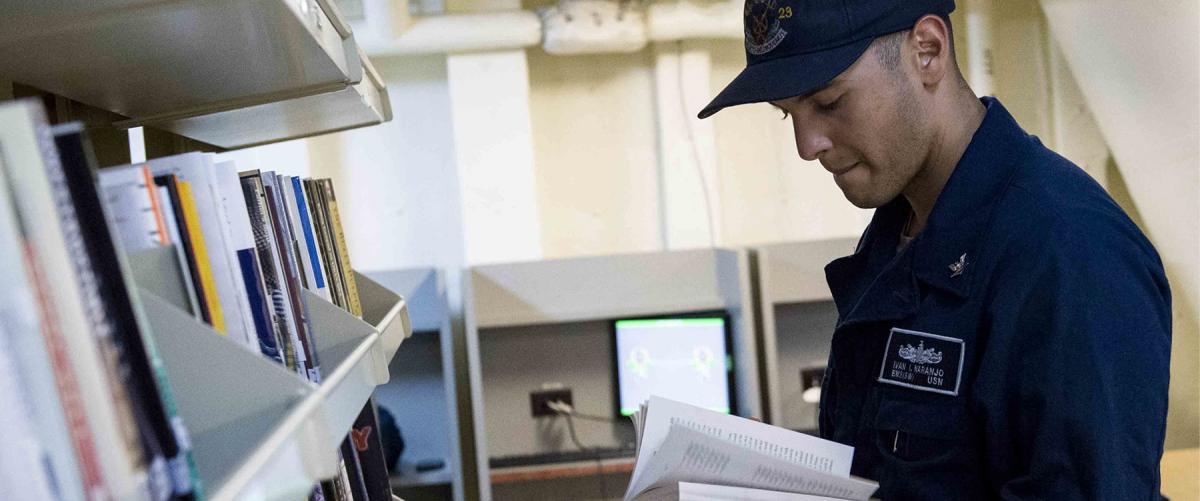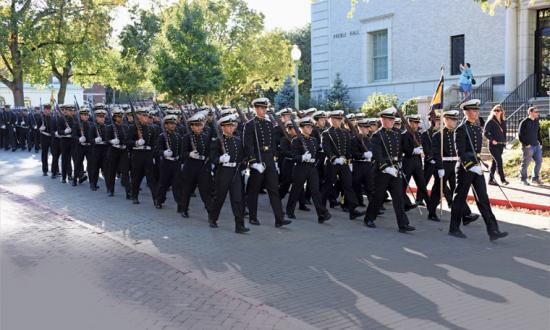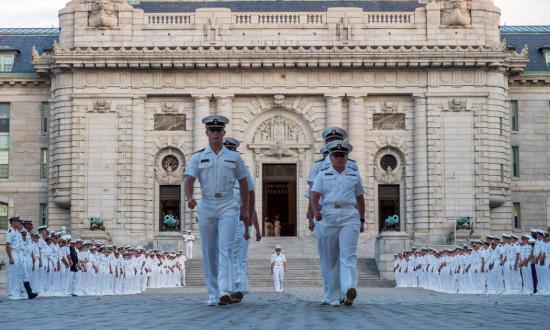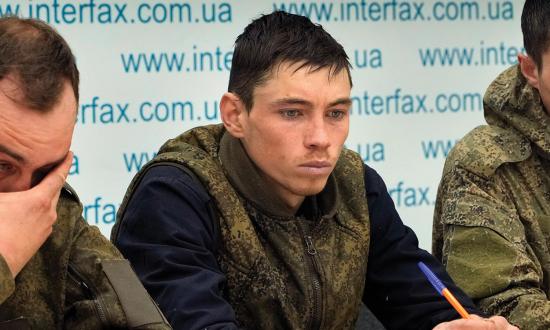“Writers on theory felt the difficulty of the subject soon enough, and thought themselves entitled to get rid of it by directing their maxims and systems only upon material things and a one-sided activity. Their aim was to reach results, as in the science for the preparation for war, entirely certain and positive, and therefore only to take into consideration that which could be made matter of calculation.” —Carl von Clausewitz, On War–Book 2, Chapter 2
The articulation and execution of meaningful strategic policy should (in theory) be at the core of everything the U.S. Navy is designed to accomplish—namely, deterring aggression and/or securing victory in conflicts both grand and minor in their importance. A multilateral approach is often demanded from the senior officers involved in the process: a broad but respectable knowledge of the various platforms across the fleet and their capabilities in combat; familiarity with the sailors and Marines under one’s command; and an understanding of the enemy—including knowledge of their history, culture, and philosophy. Yet, it is perhaps the last one—the “warrior-philosopher” mindset—that is the least appreciated.
The Navy’s lack of a clear and decisive strategy is not a recent issue—senior leaders have been well aware of this setback for quite some time now. When trying to pinpoint roadblocks in the strategy-making process, however, senior leaders often are tempted to cite the more explicit, concrete problems the service has faced over the years (i.e. budget cuts, wasteful spending, misallocating resources, etc.). While these issues are relevant, dealing with them will not fully address the strategy issue. To do so, the Navy should cultivate the warrior-philosopher mindset in its senior officers.
The Warrior-Philosopher
Military theorists and strategists have almost always drawn on a unique set of cultural and historical circumstances to inform their understandings of war and the human condition. Nearly all these strategists were voracious readers. Napoleon Bonaparte famously established a camp library that accompanied him on his expeditions throughout Europe and from which he was an insatiable consumer of history, philosophy, and the classical scholars.
Appropriately, Napoleon’s use of deception, encirclement, and surprise on the battlefield is owed in part to his reading of these texts. Similarly, Carl von Clausewitz drew on the writings of some of history’s most famous philosophers in his composition of On War. Though there is some disagreement as to the extent of their influence, most scholars would agree that Clausewitz was influenced by the works of Immanuel Kant, Georg Wilhelm Friedrich Hegel, and a host of other members of the German intelligentsia. In so doing, “he was convinced that the validity of any special analysis of military problems depended on general perception, on a correct concept of the nature of war.” All these men share a profound understanding of the nature of war and the psychology that underpins human behavior in both the social and political realms. In other words, the “warrior-philosopher” mindset.
A modern equivalent would be the former Secretary of Defense and retired Marine General James Mattis’ infamous “warrior-monk” persona. The mindset of the warrior-philosopher demands both a concrete and abstract understanding of war and themselves. Sailors often fixate on how to fight, but the warrior-philosopher first asks why we fight. Thus, the warrior-philosopher is then compelled to ask why the enemy fights. In so doing, the warrior-philosopher will not only be fully aware of their own strengths and weaknesses (in addition to that of the enemy) in an abstract sense but will be able to articulate how those abstractions are realized on the battlefield and better predict what the enemy will do and how they will react. This is precisely what Sun Tzu was referring to when he stressed that we must know ourselves and our enemy to achieve victory.1
The process of creating warrior-philosophers is rarely definitive or replicable across all circumstances over time. A well-rounded education covering not only the natural sciences and mathematics, but history, culture, and philosophy—is certainly a place to start.
The Art and Science of Strategy
Strategy-making is often a two-fold endeavor: it is functionally both a science and an art. In the case of the former, there are certain aspects of war that never change, regardless of the technology, adversary, or time period. It is equally important that strategy makers remember the lessons of history when pursuing new forms of military strategy. On the other hand, adhering too rigidly to old ways of thinking will leave a country potentially unfit to tackle the rapidly changing circumstances and adversaries of a forward marching world.
The warrior-philosopher is skilled precisely because they balance both concrete and abstract conceptualizations of warfare and military strategy. Even so, the Navy has increasingly favored the former over the latter, focusing on solutions that improve recognizable metrics (i.e. more ships, improved weapons systems, etc.)—a direct consequence of the Navy's unbalanced approach to strategy-making. By reemphasizing the central tenets of the warrior-philosopher, the Navy can provide the senior officer corps with an expanded cognitive toolbox to construct more meaningful forms of strategy.
Many of these suggestions are speculative in nature. Fortunately, Vladimir Putin’s recent war in Ukraine provides a tangible example. In terms of raw numbers, Russia held a significant advantage in both weaponry and personnel relative to the Ukrainians from the onset.2 Furthermore, Russian forces also enjoyed the support of Moscow-backed separatists in the Donbas region leading up to the invasion, which should have eased logistical issues as Russian forces pushed farther into the country from the southeast. It was assumed that the Russian military would have swept aside any significant Ukrainian resistance. That assumption has now been comfortably debunked: not only are Russian losses estimated to be greater than 100,000, killed or wounded, but Russia itself has been hit with crippling sanctions whose effects are becoming increasingly difficult to ignore.
Certainly, significant logistical problems and lack of serious operational experience (among other issues) contributed to meager results in Ukraine. However, this overlooks the underlying issue: thus far, Moscow has failed to instruct its military leaders in the conceptual means of warfare—neglecting the role of the warrior-philosopher. Senior Russian officers severely misunderstood Ukraine as a people, a country, and a culture. Most notably, Russian leaders have continually asserted that Ukraine has always belonged to the Russian fatherland and that Ukraine’s existence as a separate nation (and, by implication, a separate culture and people) is only because of the West’s “aggressive overexpansion” and corruptive influence. In failing to understand their enemy, the Russians could not conceive of a sufficient strategy to accomplish their material objectives. Had they done the so, they would have been better prepared to encounter heavy Ukrainian resistance.
Looking Forward
The process of developing the warrior-philosopher is intense, requiring officers to begin this path early on in their careers—preferably while they are still quite junior. Emphasizing the need for a rigorous liberal education should be highly prioritized. Rather than creating reading lists, senior leaders should cultivate an environment in which an understanding of warfare in the abstract sense is something that is pursued for its own merits and not just for advancement. Leaders can encourage their subordinates to discuss relevant literary works to understand the enemy as they understand themselves and strategize accordingly. There should be an even spread of literature concerning leadership in action, the classical works (i.e. The Republic, On War, The Art of War, etc.) and various works of history. Taking these steps would do much to give the Navy a creative edge in building a competitive strategy for the conflicts of tomorrow.






